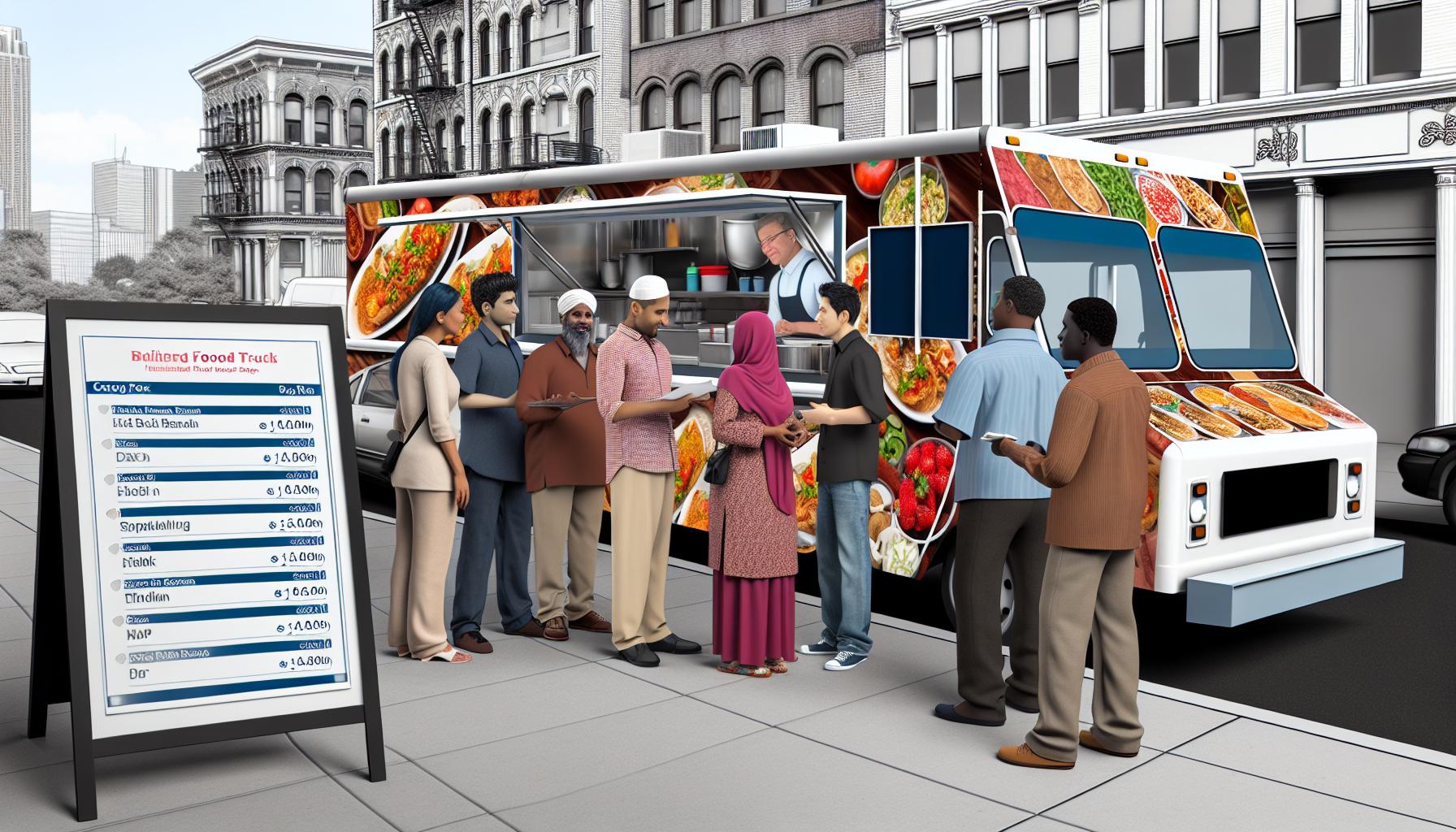If you’ve ever dreamed of cruising around town serving delicious tacos or gourmet grilled cheese sandwiches, you’re probably wondering one thing: is investing in a food truck worth it? The food truck industry has exploded in recent years, becoming a lucrative niche within the restaurant sector. But before you dive headfirst into this delicious venture, let’s break down the costs and ingredients that make up a successful food truck investment.
Understanding the Initial Costs
When considering a food truck investment, the initial costs can seem daunting. However, understanding each component helps you prepare for the journey ahead. Here’s a breakdown of what you should expect:
- Cost of the Truck: One of the biggest expenses is, of course, the food truck itself. Depending on the condition, size, and custom features, a used truck can range from $20,000 to $100,000. A new truck with all the bells and whistles can cost upwards of $150,000.
- Kitchen Equipment: You’ll need commercial-grade appliances tailored to your menu. This can include grills, fryers, refrigerators, and possibly even ovens. Expect to budget anywhere from $15,000 to $40,000.
- Licensing and Permits: Depending on your location, obtaining the necessary permits can cost you between $500 and $2,000. This includes health permits, business licenses, and parking permits.
- Insurance: Commercial vehicle insurance, general liability, and property insurance are essential. This could range from $2,000 to $4,000 annually.
- Initial Inventory: Stocking your truck with food supplies and ingredients for your opening days can set you back $1,000 to $5,000.
- Marketing and Branding: Creating a memorable brand often involves designing a professional logo and promoting your truck through social media and local advertising, which can cost around $1,000.
When you consider all of these costs, a food truck investment could require an initial outlay of $50,000 to $250,000. But fret not—like any good mobile kitchen, we’ll navigate this terrain with style and preparation.
Ongoing Operational Expenses
Your financial roadmap doesn’t end once you hit the road. Understanding ongoing operational expenses is crucial in maintaining profitability in your food truck investment:
- Fuel Costs: Given that food trucks are mobile, fuel becomes a significant recurring cost. Depending on your truck’s fuel efficiency and operational radius, you might spend anywhere from $200 to $700 a month.
- Staffing: If you’re planning on running a larger operation, hiring staff can add up quickly. Wages can vary, but budgeting $15-$20 per hour for employees is a good starting point, along with payroll costs.
- Maintenance and Repairs: Just like any vehicle, a food truck requires regular maintenance. Annually, consider setting aside $2,000 to $5,000 for maintenance and unexpected repairs.
- Supplies and Inventory: Depending on the volume of your sales, monthly inventory costs could range from $2,000-$8,000.
- Marketing Efforts: Keeping the momentum in marketing is essential. Allocate around $500-$2,000 monthly for social media ads, events, and promotional efforts.
Understanding these ongoing fees helps ensure you maintain solid cash flow while enjoying the culinary adventure of managing a food truck.
The Potential for Profit
So, is there treasure at the end of this food truck rainbow? Absolutely! The food truck business can be profitable, but it requires diligence and savvy operations:
- Revenue Potential: The average food truck brings in between $250,000 to $500,000 annually. Factors such as location, menu prices, and customer footfall greatly influence these figures.
- Flexibility in Operations: A food truck allows you to pivot your location and offerings based on market demand. Seasonal festivals, local events, and farmer’s markets can all boost your revenue.
- Lower Overhead Costs: Compared to traditional restaurants, food trucks often reduce costs related to rent and utilities, allowing for high-profit margins.
- Building a Loyal Following: With excellent food and service, you can build a brand that turns casual customers into regulars who chase your truck across town!
However, remember that these rewards don’t come without effort, and the road can be bumpy. Stay adaptable and responsive to your customers’ changing preferences.
Key Factors in Success
Here are some critical components that can help ensure the success of your food truck investment:
- Unique Offerings: What sets you apart from the myriad of food trucks? Whether carnival-style corn dogs or a twist on classic pasta dishes, your menu should be distinctive.
- Master Your Marketing: Utilize social media platforms to update customers on your location and special offerings. Engaging customers online can convert them to loyal fans.
- Location, Location, Location: Being in the right place at the right time can make or break your sales. Research local events, festivals, and busy hotspots for maximum visibility.
- Quality Over Quantity: Resist the urge to oversaturate your menu. Focus on a few signature items that you can perfect, ensuring consistent quality.
When you add these tactics to your business strategy, you’ll be one step closer to achieving culinary stardom on wheels!
Final Thoughts on Food Truck Investment
Ultimately, is investing in a food truck worth it? If you’re passionate about food, enjoy interacting with customers, and are ready to tackle the challenges head-on, then yes! It can be a rewarding venture laden with opportunities for creativity and community engagement. However, one must calculate the costs, navigate the often rugged terrain of expenses, and continuously seek to adapt.
With the right planning and a sprinkle of culinary magic, your food truck investment can take you places you’ve only dreamed of—hopefully with a side of fries!


